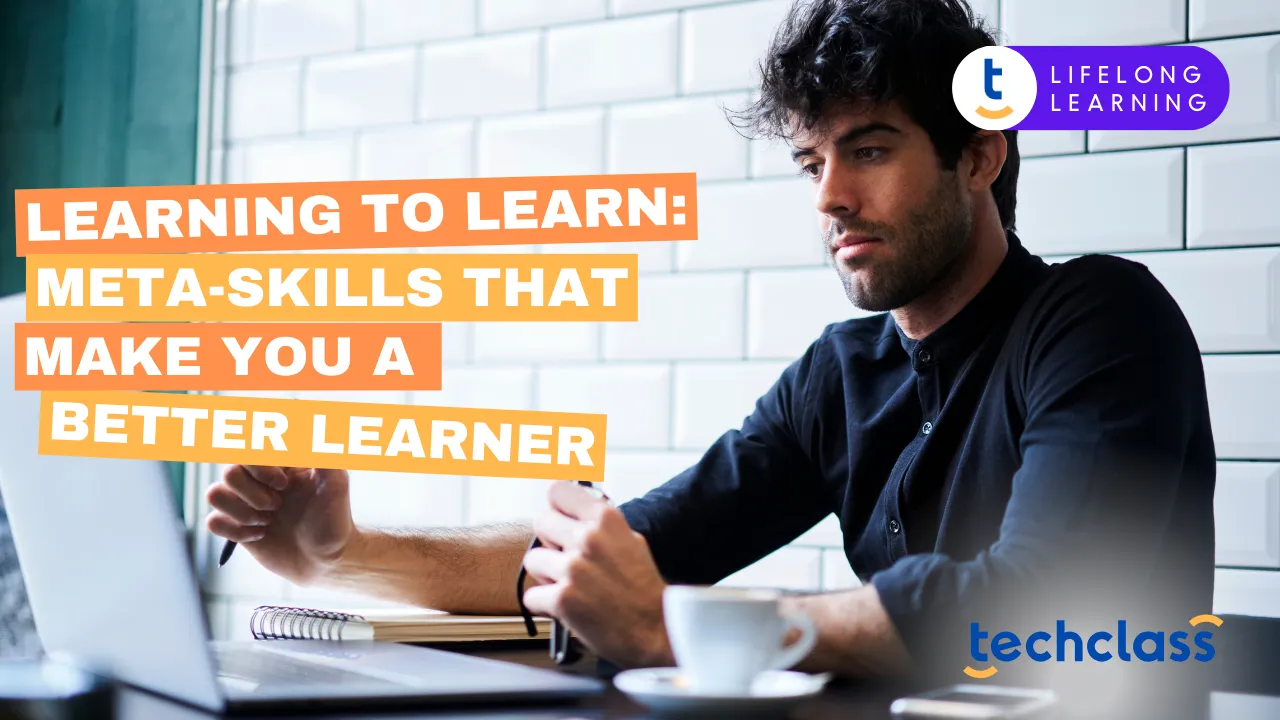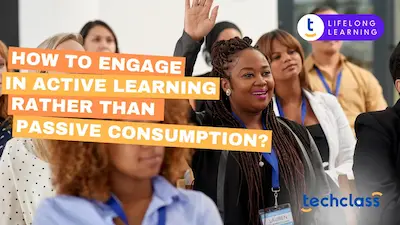
With information at our fingertips and the nature of work shifting at lightning speed, success depends less on static knowledge and more on the ability to learn swiftly and adaptively. At the heart of this ability lies a powerful set of Meta-skills, especially meta-learning, the skill of learning how to learn.
Whether you're picking up a new language, mastering coding, or adapting to AI-powered workflows, developing meta-skills can drastically accelerate your growth and resilience. Let’s explore what these skills are, why they matter, and how to cultivate them for lifelong learning.
Meta-learning is the process of becoming aware of and refining the way you learn. It involves examining your learning habits, recognizing what strategies work for you, and adapting them to different situations. Instead of diving straight into a subject, meta-learners pause and ask:
This strategic approach isn’t limited to students. Entrepreneurs, athletes, polyglots, and successful professionals regularly rely on meta-learning to adapt and thrive.
With AI, automation, and remote-first work reshaping industries, specific technical skills are no longer enough. The most in-demand capabilities today are adaptability, critical thinking, and learning agility, all of which are meta-skills.
Meta-skills provide a future-proof learning toolkit. They allow you to:
This is your ability to learn, unlearn, and relearn rapidly. Agile learners don’t stick to one method. They experiment, adjust, and apply their learnings flexibly across domains.
Tip: Use techniques like spaced repetition, interleaving (mixing topics), and the Feynman Technique (explaining concepts in simple terms) to stretch your agility muscles.
Knowing your learning preferences (visual, auditory, kinesthetic) helps you tailor your approach. Self-aware learners understand their strengths and blind spots.
Try this: Reflect on past learning experiences. What helped you succeed? What made you struggle? Use journaling to track patterns.
In the age of misinformation, it’s essential to evaluate the reliability and relevance of information before accepting it.
Practice: Analyze sources, question assumptions, and synthesize multiple viewpoints before drawing conclusions.
Change is the new constant. Adaptable learners embrace ambiguity and use it as a catalyst for growth.
Build this: Step out of your comfort zone. Take on diverse tasks and engage in new roles or environments to sharpen your flexibility.
This is about taking initiative: setting learning goals, finding resources, and monitoring your own progress, without waiting for someone to guide you.
Build autonomy: Start a personal project with a timeline and milestones. Use feedback loops to self-correct and stay on track.
A growth mindset is the belief that abilities can be developed with effort and persistence. A growth mindset helps learners push past failures and view them as feedback, not defeat.
Adopt it: Reframe challenges as opportunities to grow. Remind yourself: "I can't do this… yet."
Meta-learners approach problems with structured analysis, creative ideation, and strategic implementation.
Action step: Break down complex issues into parts, brainstorm possible solutions, and test them iteratively.
Artificial Intelligence is not here to replace learners, but to augment them. Here's how AI can become your learning companion:
Let’s clear the air about a few common misconceptions:
Replace vague goals like “learn Python” with specific, time-bound objectives such as “build a budgeting app in Python in 3 weeks.” SMART goals give you structure, help track progress, and keep motivation high. They also make it easier to reflect on what worked and what didn’t. Break larger goals into smaller steps for daily or weekly focus.
Try different methods like videos, books, flashcards, or teaching someone else. Everyone learns differently, and different topics may require different approaches. Testing various strategies helps you identify what leads to the best retention and understanding. Being flexible in your methods builds learning agility.
Keep a simple journal or use digital tools to track what you learned, how you learned it, and how well it worked. Logging builds self-awareness and creates a feedback loop for continuous improvement. It also helps you spot patterns in your learning habits. Reflect regularly to refine your approach.
Get input from mentors, peers, or even AI tools to uncover blind spots and improve faster. External feedback provides different perspectives and helps validate your learning strategies. Don’t wait until you’re stuck, actively ask for suggestions throughout your learning process. Use the feedback to adjust and grow.
Push yourself beyond your comfort zone with tasks that feel just slightly out of reach. Tackling harder problems builds resilience, adaptability, and confidence. Learning happens most when it’s difficult but doable. Treat challenges as opportunities to level up your meta-skills.
Want to practice meta-learning in real life? Here’s how you can learn the basics of Spanish in one month using meta-learning principles:
Repeat this structure with any new skill.
By nurturing learning agility, self-awareness, adaptability, and a growth mindset, you won’t just survive the future of work, you’ll shape it.
While developing meta-skills is a personal journey, organizations must provide the infrastructure for these abilities to flourish. Relying on outdated, static systems often stifles the curiosity and agility needed for modern work. TechClass bridges this gap by offering a human-centric learning environment designed for the modern employee.
Through AI-driven personalization and structured Learning Paths, TechClass helps individuals move beyond passive consumption to build genuine learning agility. Our AI Tutor acts as a 24/7 companion for self-directed exploration, while integrated analytics allow learners to track their progress and refine their strategies in real-time. By providing the tools for continuous growth, TechClass transforms workplace training into a powerful engine for lifelong learning and professional resilience.

.webp)
